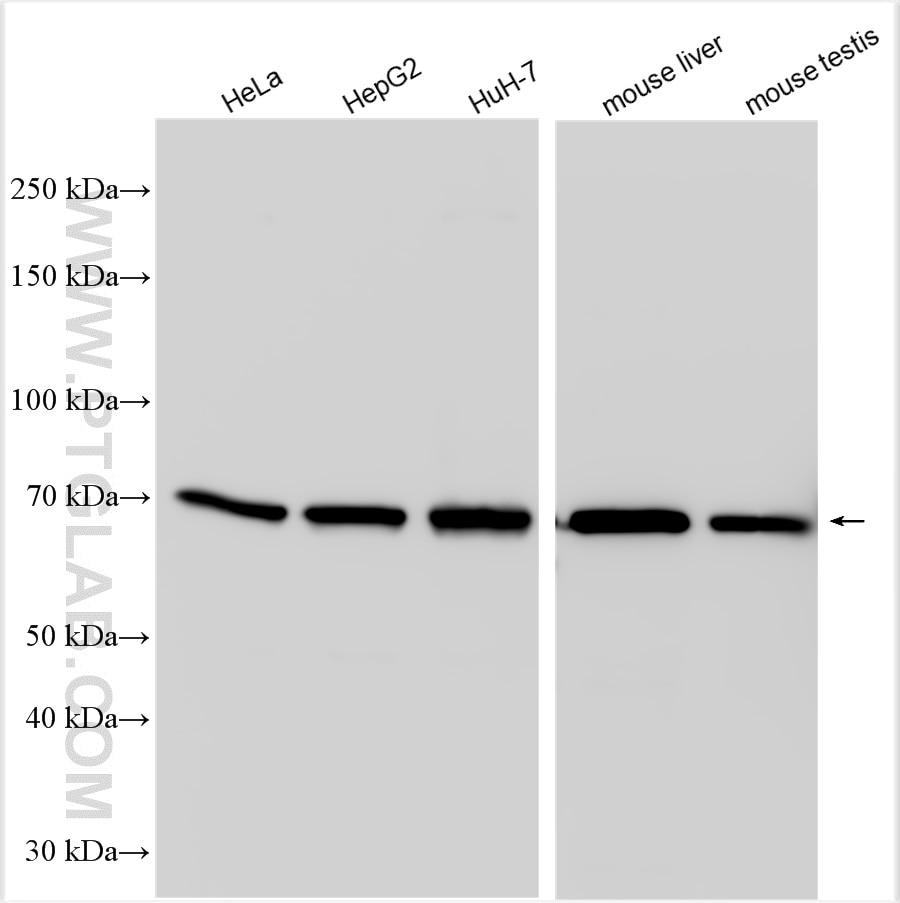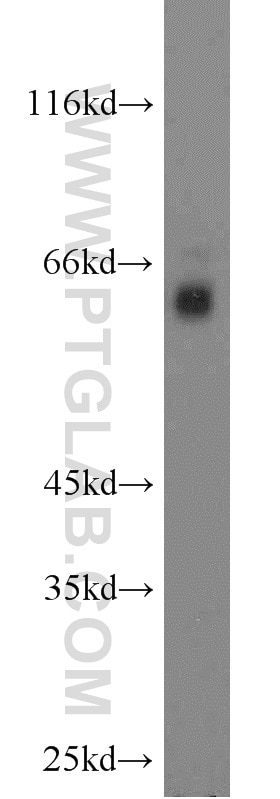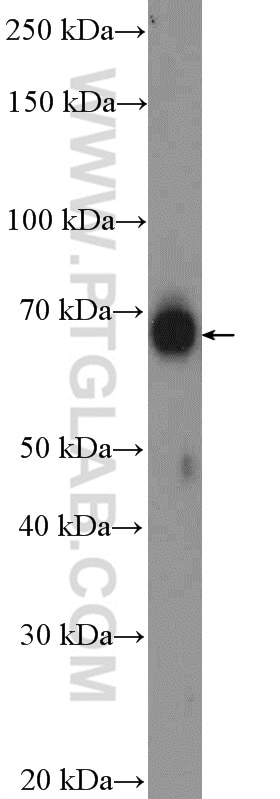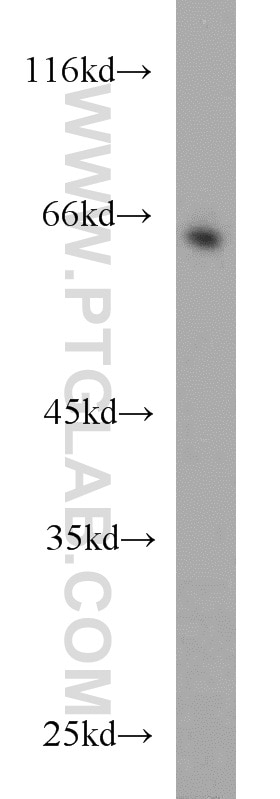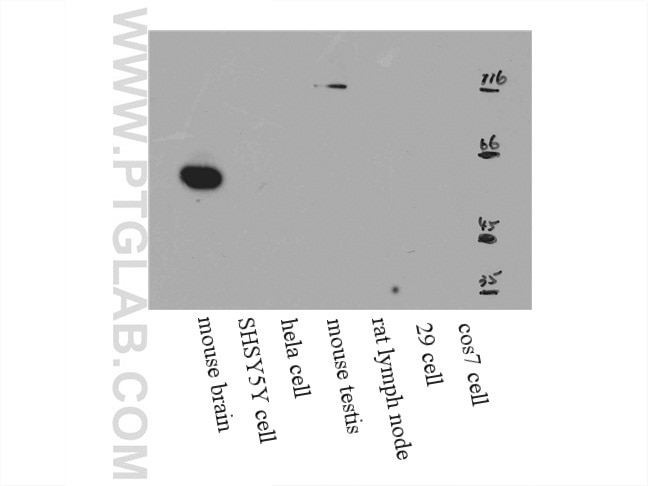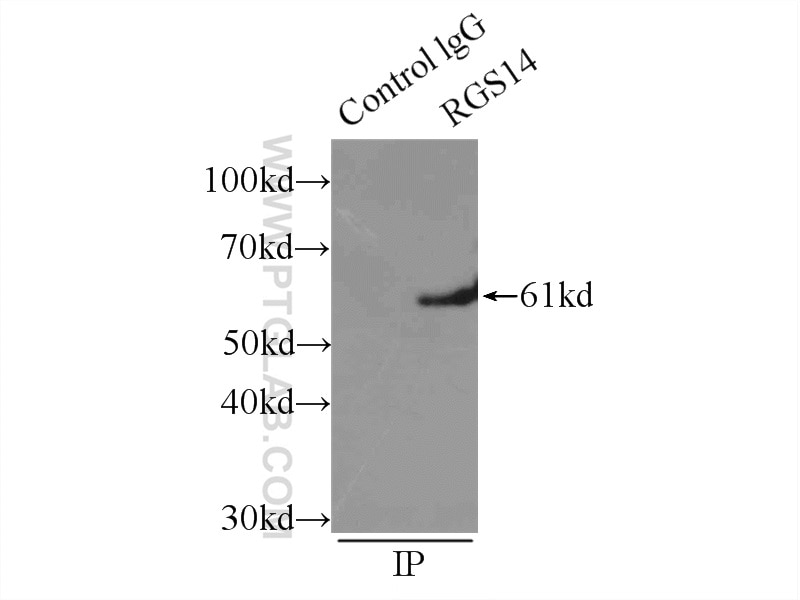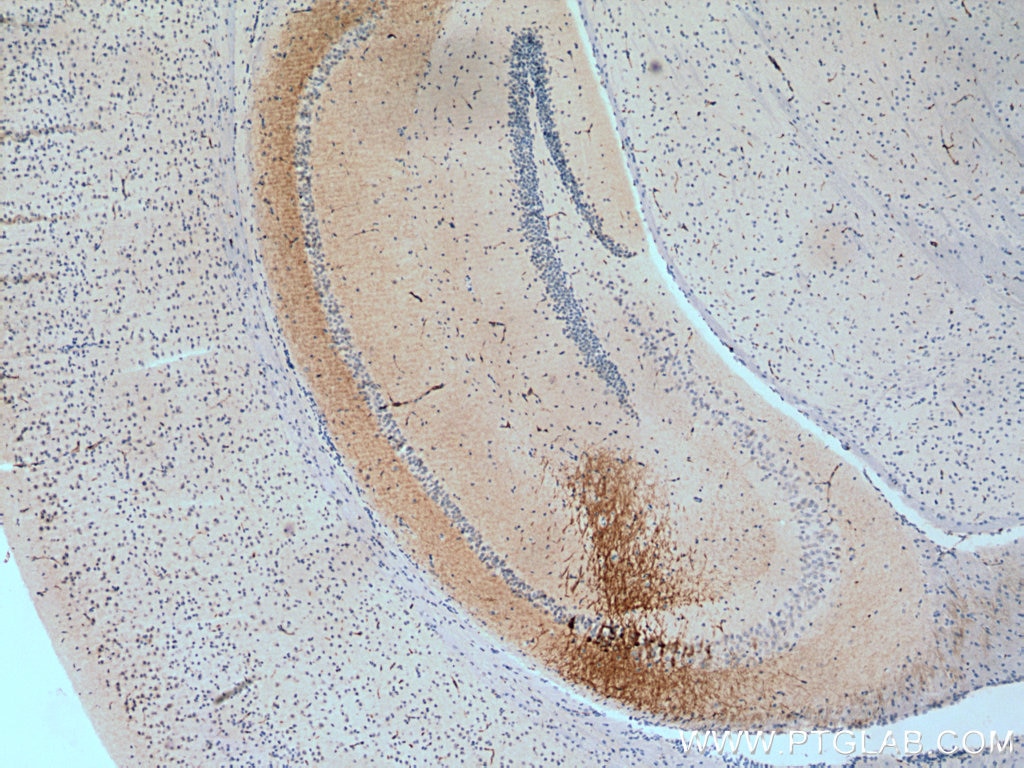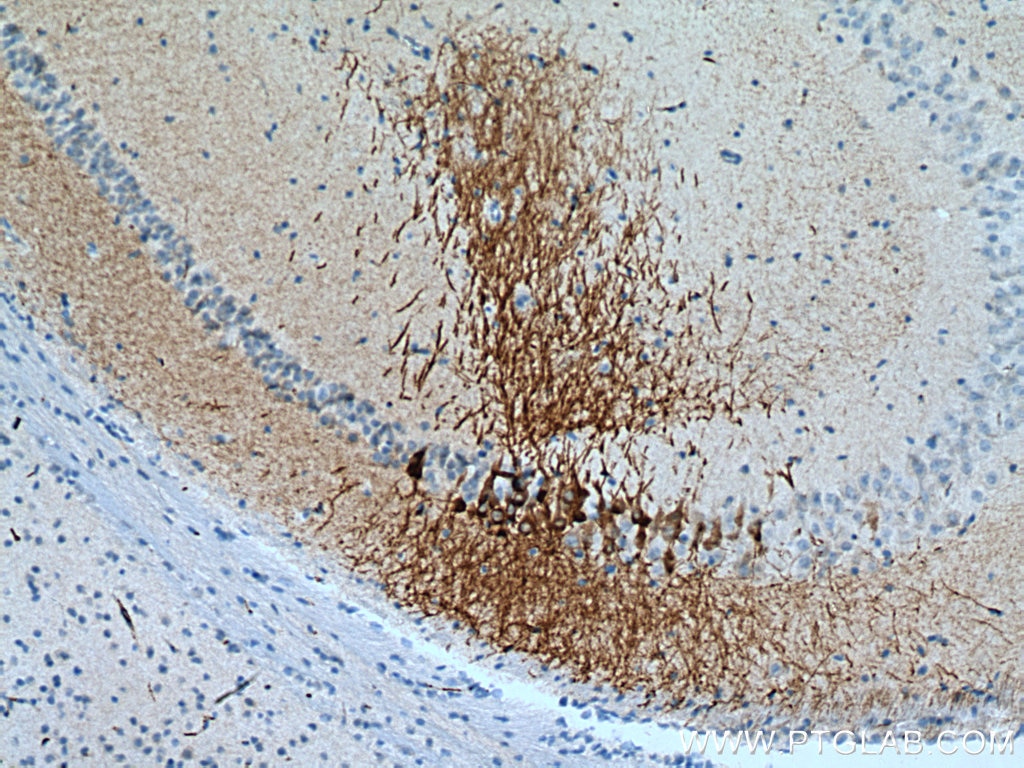- Featured Product
- KD/KO Validated
RGS14 Polyklonaler Antikörper
RGS14 Polyklonal Antikörper für WB, IP, IHC, ELISA
Wirt / Isotyp
Kaninchen / IgG
Getestete Reaktivität
human, Maus und mehr (2)
Anwendung
WB, IHC, IF, IP, CoIP, ELISA
Konjugation
Unkonjugiert
Kat-Nr. : 16258-1-AP
Synonyme
Geprüfte Anwendungen
| Erfolgreiche Detektion in WB | HeLa-Zellen, HepG2-Zellen, HuH-7-Zellen, Maushirngewebe, Mauslebergewebe, Mausmilzgewebe, Maushodengewebe |
| Erfolgreiche IP | Maushirngewebe |
| Erfolgreiche Detektion in IHC | Maushirngewebe Hinweis: Antigendemaskierung mit TE-Puffer pH 9,0 empfohlen. (*) Wahlweise kann die Antigendemaskierung auch mit Citratpuffer pH 6,0 erfolgen. |
Empfohlene Verdünnung
| Anwendung | Verdünnung |
|---|---|
| Western Blot (WB) | WB : 1:1000-1:4000 |
| Immunpräzipitation (IP) | IP : 0.5-4.0 ug for 1.0-3.0 mg of total protein lysate |
| Immunhistochemie (IHC) | IHC : 1:2500-1:10000 |
| It is recommended that this reagent should be titrated in each testing system to obtain optimal results. | |
| Sample-dependent, check data in validation data gallery | |
Veröffentlichte Anwendungen
| KD/KO | See 2 publications below |
| WB | See 6 publications below |
| IHC | See 3 publications below |
| IF | See 5 publications below |
| IP | See 1 publications below |
| CoIP | See 1 publications below |
Produktinformation
16258-1-AP bindet in WB, IHC, IF, IP, CoIP, ELISA RGS14 und zeigt Reaktivität mit human, Maus
| Getestete Reaktivität | human, Maus |
| In Publikationen genannte Reaktivität | human, Affe, Maus, Ratte |
| Wirt / Isotyp | Kaninchen / IgG |
| Klonalität | Polyklonal |
| Typ | Antikörper |
| Immunogen | RGS14 fusion protein Ag9292 |
| Vollständiger Name | regulator of G-protein signaling 14 |
| Berechnetes Molekulargewicht | 566 aa, 61 kDa |
| Beobachtetes Molekulargewicht | 60-65 kDa |
| GenBank-Zugangsnummer | BC014094 |
| Gene symbol | RGS14 |
| Gene ID (NCBI) | 10636 |
| Konjugation | Unkonjugiert |
| Form | Liquid |
| Reinigungsmethode | Antigen-Affinitätsreinigung |
| Lagerungspuffer | PBS with 0.02% sodium azide and 50% glycerol |
| Lagerungsbedingungen | Bei -20°C lagern. Nach dem Versand ein Jahr lang stabil Aliquotieren ist bei -20oC Lagerung nicht notwendig. 20ul Größen enthalten 0,1% BSA. |
Hintergrundinformationen
RGS14, a member of the R12 subfamily of RGS proteins, is highly expressed in the brain and is a natural suppressor of CA2 hippocampal synaptic plasticity and learning and memory. RGS14 was first identified as a complex scaffolding protein with an unconventional domain structure that allows it to interact with various protein binding partners. RGS14 contains one RGS domain, two Raf-like Ras-binding domains (RBDs), and one GoLoco domain. The protein attenuates the signaling activity of G-proteins by binding, through its GoLoco domain, to specific types of activated, GTP-bound G alpha subunits. Acting as a GTPase activating protein (GAP), the protein increases the rate of conversion of the GTP to GDP.
Protokolle
| PRODUKTSPEZIFISCHE PROTOKOLLE | |
|---|---|
| WB protocol for RGS14 antibody 16258-1-AP | Protokoll herunterladen |
| IHC protocol for RGS14 antibody 16258-1-AP | Protokoll herunterladenl |
| IP protocol for RGS14 antibody 16258-1-AP | Protokoll herunterladen |
| STANDARD-PROTOKOLLE | |
|---|---|
| Klicken Sie hier, um unsere Standardprotokolle anzuzeigen |
Publikationen
| Species | Application | Title |
|---|---|---|
Mol Metab Hepatic Regulator of G protein Signaling 14 Ameliorates NAFLD through Activating cAMP-AMPK Signaling by Targeting Giα1/3
| ||
Brain Struct Funct Regulator of G protein signaling 14 (RGS14) is expressed pre- and postsynaptically in neurons of hippocampus, basal ganglia, and amygdala of monkey and human brain. | ||
Exp Neurol Modelling cognitive deficits in Parkinson's disease: Is CA2 a gateway for hippocampal synucleinopathy? | ||
J Biol Chem Human genetic variants disrupt RGS14 nuclear shuttling and regulation of LTP in hippocampal neurons. | ||
J Biol Chem RGS14 regulates hormone-sensitive NPT2A-mediated renal phosphate uptake via binding to the NHERF1 scaffolding protein. | ||
J Biol Chem 14-3-3γ binds RGS14 at distinct sites to inhibit the RGS14:Gαi-AlF4- signaling complex and RGS14 nuclear localization. |
